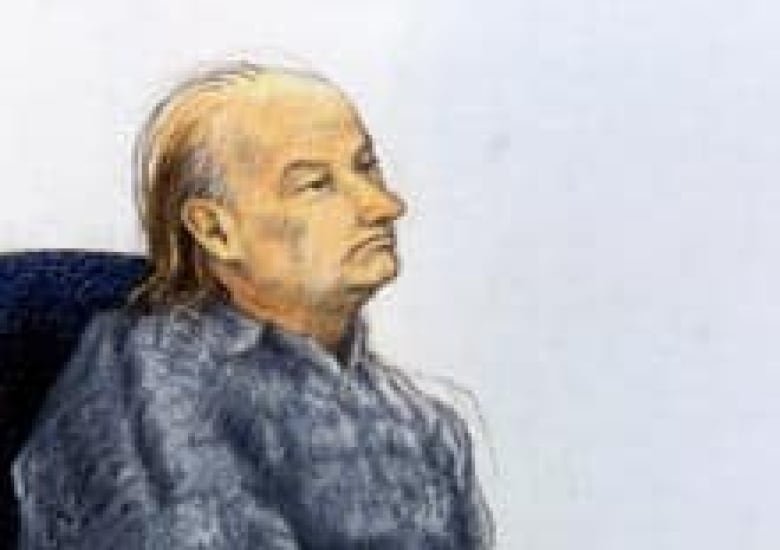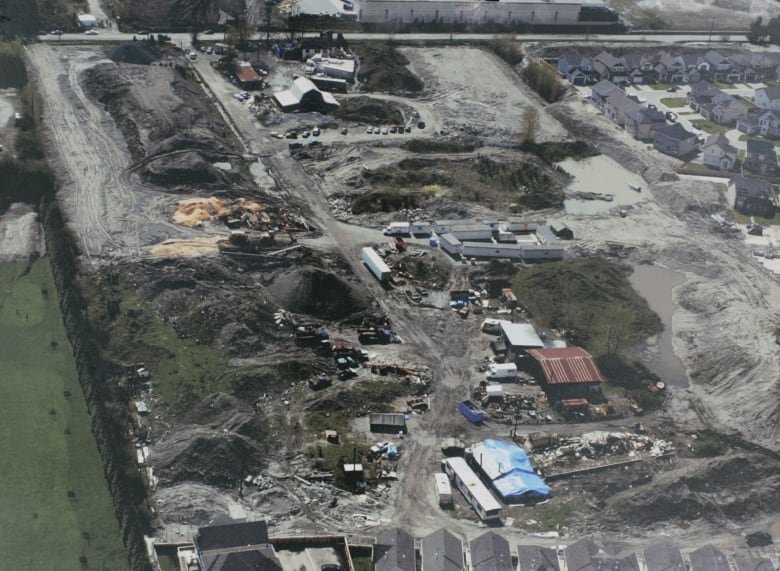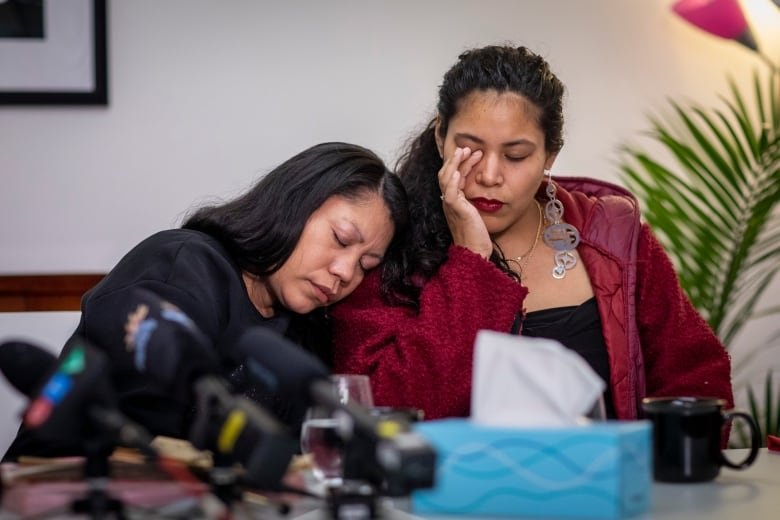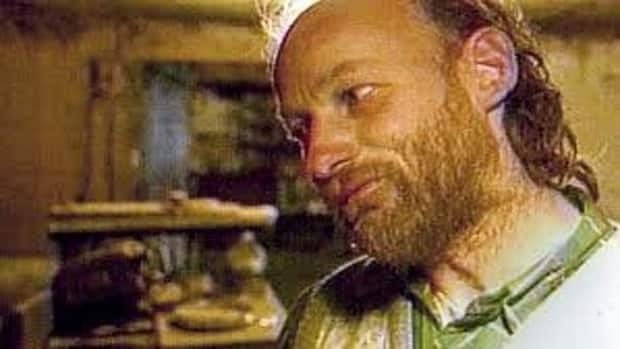RCMP seized what they believed to be a 200-page handwritten “tell-all” book found in serial killer Robert Pickton’s Quebec jail cell after his death from a violent jailhouse assault last spring, according to documents obtained by CBC.
A search warrant sworn in New Westminster provincial court following Pickton’s death on May 31 says B.C. investigators travelled to Port Cartier in August to take custody of 200 pages of notes and a 200-page “collection” titled Pickton in his own words. My life as I truly see it.
The search warrant application — written by Missing Women Task Force member Cpl. Craig Mitchell — says police hoped the book might link “Pickton or any other unknown person with any murders from the DNA profiles located at “the killer’s Port Coquitlam farm.
But RCMP claim the “writings have been thoroughly examined and contained no reference to any of the missing women or offences for which Pickton was convicted.”
“We recognize that there are families with questions about their loved one’s disappearances. However, the content of writings did not provide any answers, and so, unfortunately, there is no new information to share with them,” an RCMP spokesperson said in a statement to CBC.
‘A chance in court to provide a fulsome account’
News of the existence of a handwritten book and ongoing efforts by police to investigate the deaths of dozens of women Pickton is believed to have killed came as a surprise to families of his victims — who have been fighting to preserve evidence related to the case.
“The RCMP should be credited with continuing this investigation to identify Pickton’s accomplices and further potential victims,” said Jason Gratl, a lawyer acting in civil proceedings for the children of nine women allegedly murdered by Robert Pickton.
“But this new development does not sit well with the RCMP’s plan to destroy previously gathered evidence on the basis that the investigation is closed.”

Pickton was convicted of second-degree murder in 2007 in relation to the deaths of Sereena Abotsway, Mona Wilson, Andrea Joesbury, Marnie Frey, Georgina Papin and Brenda Wolfe.
He was initially charged with 27 counts of first-degree murder, but 21 of those counts were stayed.
The remains or DNA of 33 women, many of them taken from the Downtown Eastside, were found on Pickton’s pig farm in Port Coquitlam, B.C., about 25 kilometres east of downtown Vancouver.
At one point, Pickton told an undercover officer placed in a cell with him that he killed 49 women.
The search warrant says “reasonable grounds” exist to believe Pickton committed the murders of the 21 women named as victims in the stayed charges — including “Jane Doe,” an unidentified woman whose remains were found on his property.
After Pickton’s conviction, Mitchell claims task force investigators met with him on “numerous occasions in an attempt to generate conversation that would lead to identifying Jane Doe and any details pertaining to any of the other women whom he was suspected of killing.”
“In each instance, Pickton engaged in conversation, however maintained a belief that he would have a chance in court to provide a fulsome account.”
‘Pickton wished to talk about the crimes’
The search warrant details the investigation that led to Pickton’s arrest in February 2002 and statements he gave to police in the days after in which he claimed “there are other people involved and that he was the ‘head honcho’ but refused to elaborate further without a deal.'”
The document says Pickton also told the undercover officer “there were others involved and that he was the key-holder. Pickton stated he thought those people were his friends.”

Pickton did not testify in his defence at trial.
Mitchell travelled to Port Cartier in October 2021 with RCMP Major Crimes St. Sgt. Ron Palta to meet Pickton — who “reiterated his belief that there was a court date pending.”
“I advised Pickton that there was no such court case pending, and as such, there were no means for him to address the court in the manner in which he sought,” Mitchell wrote.
The search warrant says that in 2022, Palta spoke with a woman who had befriended Pickton and acted as his power of attorney. She allegedly told him, “Pickton wished to talk about the crimes.”
“Palta suggested that Pickton should procure counsel and/or provide investigators with a detailed list of what he wished to discuss in advance of investigators meeting with him,” the court documents say.
Pickton’s friend then allegedly contacted Robert Wright, head of special prosecutions for the B.C. Prosecution Service “seeking direction on how to get Pickton before the courts as he wanted to give a full account of the murders.”
“Wright advised [her] that the appropriate course of action would be for Pickton to co-operate with the RCMP as there was no option to go direct to court,” the search warrant says.
‘A tell-all book written by Pickton’
Pickton was violently assaulted on May 20 by another inmate at the maximum-security Port Cartier institution where he was serving his time.
According to the warrant, Palta called a representative of Correctional Services Canada upon learning of the assault to indicate “a desire for Pickton to be interviewed should he be deemed medically fit.”

Pickton died 11 days later at the age of 74 — never regaining consciousness.
“After Pickton’s death, staff at Port Cartier Institution searched Pickton’s effects for the presence of a legal will, however none was located; however within his effects was a tell-all book,” Mitchell wrote in the application to obtain the search warrant.
The prison warden allegedly told RCMP he and a security intelligence officer “had a cursory read of the writing and notes but believed it was a tell-all book written by Pickton,” the warrant reads.
RCMP arranged to travel to Quebec at the end of August to obtain the documents — which were brought to E-Division headquarters in Surrey.
‘Our lawyers should be the ones to look’
Lorelei Williams’s cousin, Tanya Holyk, went missing in 1996 — her death represents one of the 21 stayed charges.
Williams says she knew nothing about the handwritten notes found in Pickton’s cell and — speaking strictly for her family — says she would like to have been informed.
“Any written document by him is something my family would want to know,” she said.
“Our lawyers should be the ones to look at it and determine if there’s anything or not. It can’t just be the police themselves.”

Gratl said to his knowledge, the family members he represents “were not informed” about the documents. He said he was not aware of “efforts as late as 2022 to speak with Pickton.”
The lawyer said the family members intend to apply to get access to the documents.
In November 2023, the RCMP applied in B.C. Supreme Court for directions on how to handle applications for orders permitting the force to dispose of approximately 15,000 items of property police seized at Pickton’s farm.
Williams was part of a group of families, lawyers and advocates for missing and murdered women who wrote a letter opposing the move to B.C.’s attorney and solicitor generals, as well as the RCMP commissioner and the federal minister of public safety.
“Twenty of the charges against Pickton were stayed and have not yet resulted in any convictions,” the letter said.
“For the families of those victims, justice has been elusive, and they still hold hope that one day they will know what happened to their loved ones.”.
The letter went on to say, “Statements by the defence, the Crown and the jury strongly suggest a shared belief that he did not act alone, and others may be implicated in the deaths of the six women Robert Pickton was convicted of killing.”
According to court documents, the RCMP claimed “each item seized has been photographed, each document photocopied, and all DNA profiles have been preserved and uploaded to a database.”
The family members were denied formal intervenor status in court proceedings, although police must give them 30 days’ notice of any application.



